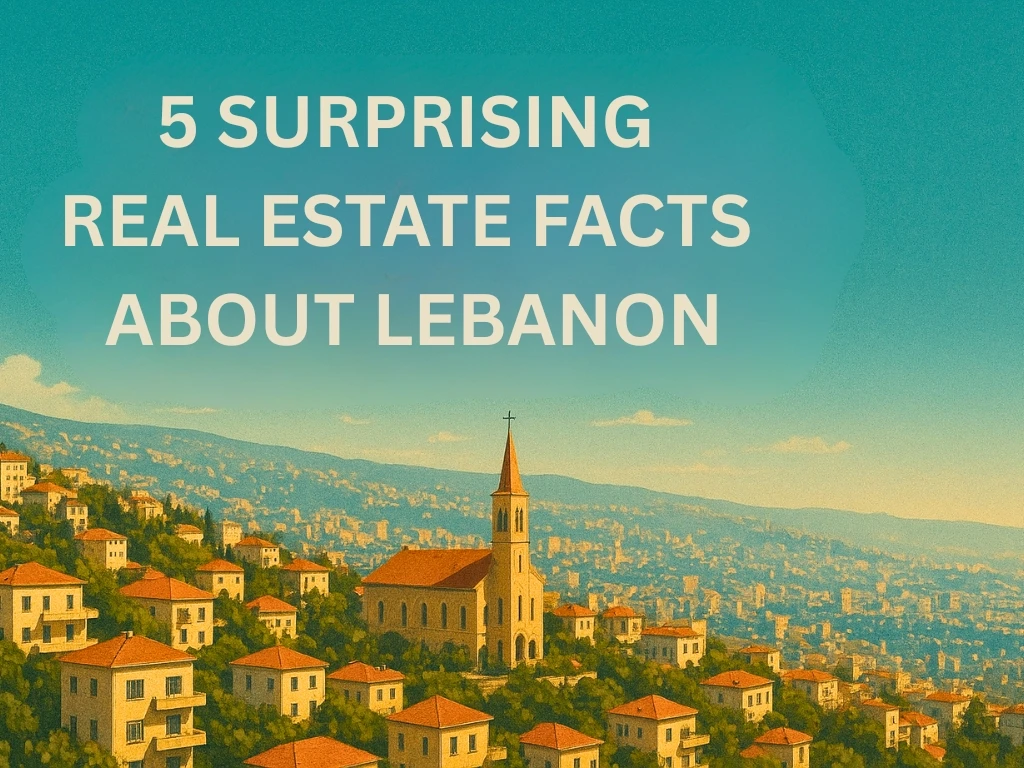Lebanon’s real estate market has always been a fascinating mix of resilience, tradition, and opportunity. Despite economic challenges, Lebanese property continues to attract both locals and expats — and some of the facts behind this market might surprise you.
Here are 5 lesser-known insights about Lebanese real estate:
1. Over 80% of Real Estate Transactions Are Paid in Cash
After the 2019 financial crisis, Lebanon became one of the few countries in the world where most real estate transactions are cash-based. With banks freezing deposits and limiting withdrawals, buyers now rely on “fresh” U.S. dollars.
This shift created a unique market dynamic where liquidity speaks louder than credit scores.
2. Expats Drive a Large Portion of Property Demand
The Lebanese diaspora — spread across Africa, the Gulf, Europe, and the Americas — has long played a key role in the property market.
Today, a significant share of apartment sales in Beirut, Metn, and Keserwan are funded by Lebanese living abroad who see real estate as a safe and emotional investment back home.
For many, owning a home in Lebanon means staying connected to their roots — no matter where they live.
3. Old Buildings Often Have Excellent Value & Are Still In Demand
Surprisingly, some older buildings in prime Beirut areas — especially those built before 1990 — still command excellent resale values per square meter.
Why? Their larger spaces, solid structures, and premium locations often outweigh the appeal of new but smaller apartments.
4. Sustainability Is Becoming a Selling Point
Lebanese buyers are increasingly asking about solar power, inverter systems, and energy-efficient materials.
Developers who integrate renewable energy solutions or water-saving systems are gaining a competitive edge, especially in regions suffering from daily electricity cuts.
Eco-friendly is no longer a luxury — it’s becoming a must.
5. Real Estate Remains Lebanon’s Most Trusted Investment
Despite currency fluctuations and political uncertainty, Lebanese people continue to believe in one thing: “land never loses its value.”
From small plots in villages to apartments in the city, property remains a cultural symbol of stability, safety, and legacy.
In Summary
Lebanon’s real estate market is unlike any other — resilient, emotional, and deeply tied to the Lebanese way of life.
Whether you’re buying, selling, or just watching the market, one thing is certain: Lebanon’s property story continues to surprise.



 Share
Share


